第6章
She sat spell-bound, her hands clasped tight, her every faculty of attention at its highest pitch.It was wonderful, such music as that; wonderful, such a voice;wonderful, such orchestration; wonderful, such exaltation inspired by mere beauty of sound.Never, never was this night to be forgotten, this her first night of Grand Opera.All this excitement, this world of perfume, of flowers, of exquisite costumes, of beautiful women, of fine, brave men.She looked back with immense pity to the narrow little life of her native town she had just left forever, the restricted horizon, the petty round of petty duties, the rare and barren pleasures--the library, the festival, the few concerts, the trivial plays.How easy it was to be good and noble when music such as this had become a part of one's life; how desirable was wealth when it could make possible such exquisite happiness as hers of the moment.Nobility, purity, courage, sacrifice seemed much more worth while now than a few moments ago.All things not positively unworthy became heroic, all things and all men.Landry Court was a young chevalier, pure as Galahad.Corthell was a beautiful artist-priest of the early Renaissance.Even Jadwin was a merchant prince, a great financial captain.And she herself--ah, she did not know; she dreamed of another Laura, a better, gentler, more beautiful Laura, whom everybody, everybody loved dearly and tenderly, and who loved everybody, and who should die beautifully, gently, in some garden far away--die because of a great love--beautifully, gently in the midst of flowers, die of a broken heart, and all the world should be sorry for her, and would weep over her when they found her dead and beautiful in her garden, amid the flowers and the birds, in some far-off place, where it was always early morning and where there was soft music.And she was so sorry for herself, and so hurt with the sheer strength of her longing to be good and true, and noble and womanly, that as she sat in the front of the Cresslers' box on that marvellous evening, the tears ran down her cheeks again and again, and dropped upon her tight-shut, white-gloved fingers.
But the contralto had disappeared, and in her place the tenor held the stage--a stout, short young man in red plush doublet and grey silk tights.His chin advanced, an arm extended, one hand pressed to his breast, he apostrophised the pavilion, that now and then swayed a little in the draught from the wings.
The aria was received with furor; thrice he was obliged to repeat it.Even Corthell, who was critical to extremes, approved, nodding his head.Laura and Page clapped their hands till the very last.But Landry Court, to create an impression, assumed a certain disaffection.
"He's not in voice to-night.Too bad.You should have heard him Friday in 'Aida.'"The opera continued.The great soprano, the prima donna, appeared and delivered herself of a song for which she was famous with astonishing eclat.Then in a little while the stage grew dark, the orchestration lapsed to a murmur, and the tenor and the soprano reentered.He clasped her in his arms and sang a half-dozen bars, then holding her hand, one arm still about her waist, withdrew from her gradually, till she occupied the front-centre of the stage.He assumed an attitude of adoration and wonderment, his eyes uplifted as if entranced, and she, very softly, to the accompaniment of the sustained, dreamy chords of the orchestra, began her solo.
Laura shut her eyes.Never had she felt so soothed, so cradled and lulled and languid.Ah, to love like that!
To love and be loved.There was no such love as that to-day.She wished that she could loose her clasp upon the sordid, material modern life that, perforce, she must hold to, she knew not why, and drift, drift off into the past, far away, through rose-coloured mists and diaphanous veils, or resign herself, reclining in a silver skiff drawn by swans, to the gentle current of some smooth-flowing river that ran on forever and forever.
But a discordant element developed.Close by--the lights were so low she could not tell where--a conversation, kept up in low whispers, began by degrees to intrude itself upon her attention.Try as she would, she could not shut it out, and now, as the music died away fainter and fainter, till voice and orchestra blended together in a single, barely audible murmur, vibrating with emotion, with romance, and with sentiment, she heard, in a hoarse, masculine whisper, the words:
"The shortage is a million bushels at the very least.
Two hundred carloads were to arrive from Milwaukee last night"She made a little gesture of despair, turning her head for an instant, searching the gloom about her.But she could see no one not interested in the stage.Why could not men leave their business outside, why must the jar of commerce spoil all the harmony of this moment.
However, all sounds were drowned suddenly in a long burst of applause.The tenor and soprano bowed and smiled across the footlights.The soprano vanished, only to reappear on the balcony of the pavilion, and while she declared that the stars and the night-bird together sang "He loves thee," the voices close at hand continued:
"----one hundred and six carloads----"
"----paralysed the bulls----"
"----fifty thousand dollars----"
Then all at once the lights went up.The act was over.
Laura seemed only to come to herself some five minutes later.She and Corthell were out in the foyer behind the boxes.Everybody was promenading.The air was filled with the staccato chatter of a multitude of women.But she herself seemed far away--she and Sheldon Corthell.His face, dark, romantic, with the silky beard and eloquent eyes, appeared to be all she cared to see, while his low voice, that spoke close to her ear, was in a way a mere continuation of the melody of the duet just finished.